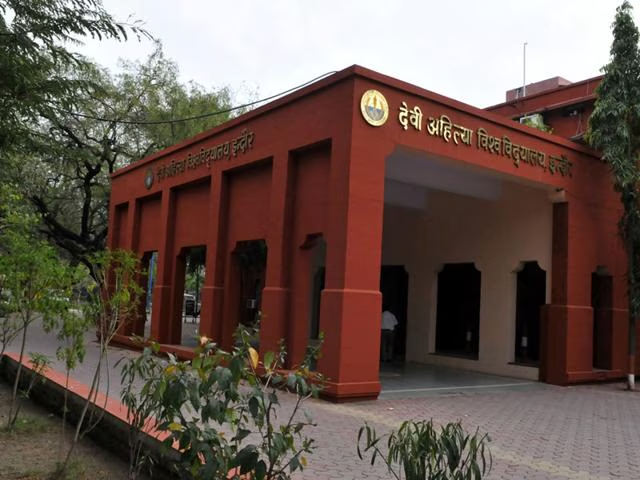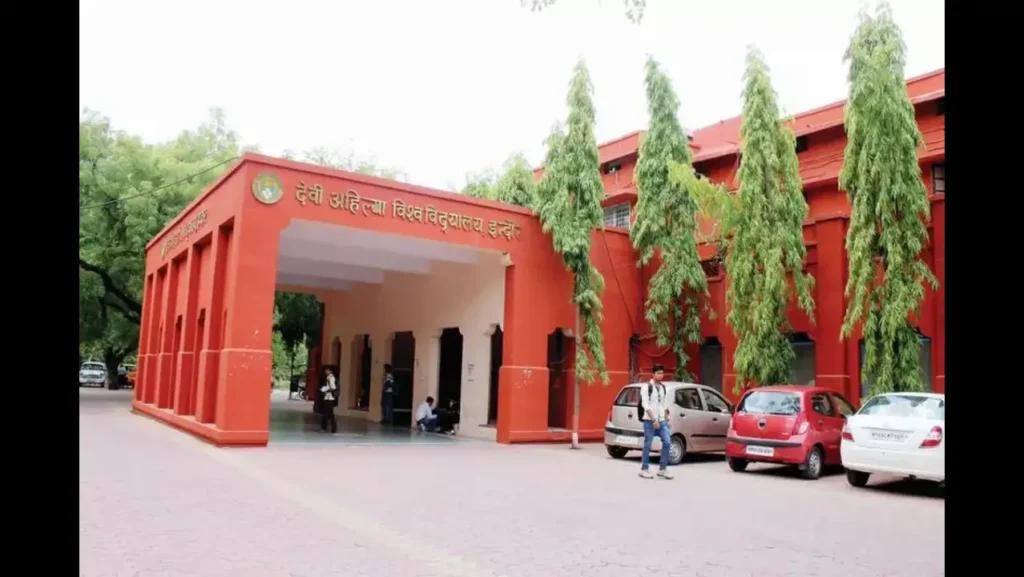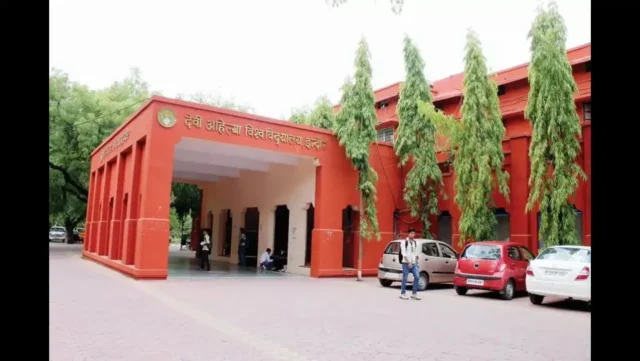In a bold step towards equipping the next generation of professionals with future-ready skills, Devi Ahilya Vishwavidyalaya (DAVV) is setting up a Centre of Excellence (CoE) for capacity building in emerging technologies. The initiative comes through a strategic partnership with the Centre for Research and Industrial Staff Performance (CRISP), a Bhopal-based autonomous organisation under the Madhya Pradesh government.
The upcoming centre will focus on AI, machine learning, automation, data science, and other critical technology sectors shaping the modern economy. With this, DAVV joins the ranks of premier Indian universities taking proactive steps to close the skills gap between academia and industry.
Table of Contents

A Vision Aligned with India’s Tech Future
The memorandum of understanding (MoU) was formally signed between DAVV and CRISP, signaling the start of a collaborative effort to integrate advanced technology training into the university ecosystem.
Prof. Rakesh Singhai, Vice-Chancellor of DAVV, explained the motivation behind this move. “The world is changing rapidly, and emerging technologies are at the centre of it all. We want our students to lead in this shift, not follow it. The Centre will provide hands-on, job-oriented training that aligns with national priorities and global trends.”
The collaboration is deeply aligned with the Indian government’s vision of becoming a $1 trillion digital economy and with Madhya Pradesh’s growing emphasis on skill-based education and employability.
What the Centre Will Offer
The Centre of Excellence will operate as a hub for training, innovation, and research. It will offer:
- Customised capacity-building workshops on AI, robotics, cybersecurity, and smart systems
- Faculty development programs to support continuous learning and curriculum enhancement
- Hands-on labs and project-based learning environments led by CRISP trainers and DAVV experts
- Industry-aligned certifications and skill assessments to help students become workforce-ready
CRISP’s Chairman Shrikant Patil noted, “This collaboration isn’t just academic—it’s strategic. We’re equipping young minds with the tools to build tomorrow’s India.”
The centre also intends to foster startup thinking and encourage student-led innovation through hackathons, product design challenges, and incubator-style mentoring.
The Role of CRISP and Government Backing
CRISP has a strong record in technical and vocational education, and their partnership ensures that the programs launched will carry real-world relevance and industry alignment. With Madhya Pradesh’s Department of Technical Education supporting the initiative, the Centre benefits from robust state-level policy support and infrastructure backing.
For DAVV, this initiative is part of a broader plan to diversify its academic portfolio and position itself as a leading university for digital innovation and smart technologies. It adds to other ongoing initiatives like the DAVV Incubation Centre, which provides early-stage support for student entrepreneurs.

Why This Matters for DAVV Students and Faculty
The Centre of Excellence is expected to directly impact thousands of students and faculty across disciplines. While computer science and engineering students will benefit most immediately, the university plans to make the programs interdisciplinary, inviting students from economics, management, life sciences, and even humanities to engage with emerging tech.
Here’s what’s on the horizon for students and faculty:
- Students: Will gain access to cutting-edge learning resources, certifications, internships, and job-linked programs that make them more competitive in the digital job market.
- Faculty: Will be able to refresh their skills in emerging domains and infuse new thinking into academic syllabi and research projects.
- Cross-collaborative projects: Will allow research scholars and undergraduates to co-develop AI-powered solutions for real-world problems in agriculture, health, and education.
Transforming DAVV’s Future—One Skill at a Time
With over two dozen schools and departments on its campus, DAVV already serves as a cornerstone of higher education in central India. But this CoE signals something more: a pivot from traditional classroom instruction to future-focused experiential learning.
DAVV’s School of Data Science and Forecasting and Institute of Engineering and Technology (IET-DAVV) are expected to be closely involved in developing the Centre’s core curriculum and labs.
It’s a timely development as India—and indeed the world—faces a shortage of AI-skilled professionals. According to NASSCOM, India will require over 1.4 million professionals skilled in emerging tech by 2026. Centres like the one coming up at DAVV could play a pivotal role in meeting this demand.

Timeline and Next Steps
Work on setting up the infrastructure is expected to begin immediately, with the first round of capacity-building programs expected to launch by early 2026. In the interim, pilot workshops and faculty onboarding programs will roll out starting later this year.
The university is also exploring collaborations with private tech firms to co-develop modules and offer students access to proprietary tools, datasets, and internship pipelines.
Conclusion
In a region often perceived as trailing metro cities in tech innovation, DAVV is quietly and determinedly rewriting that narrative. With the launch of its Centre of Excellence for capacity building in emerging technology, it is sending a clear message: the future belongs to those who prepare for it today.
This is not just about buildings or labs. It’s about building people. And DAVV appears ready to lead.
Join Our Social Media Channels:
WhatsApp: NaijaEyes
Facebook: NaijaEyes
Twitter: NaijaEyes
Instagram: NaijaEyes
TikTok: NaijaEyes





